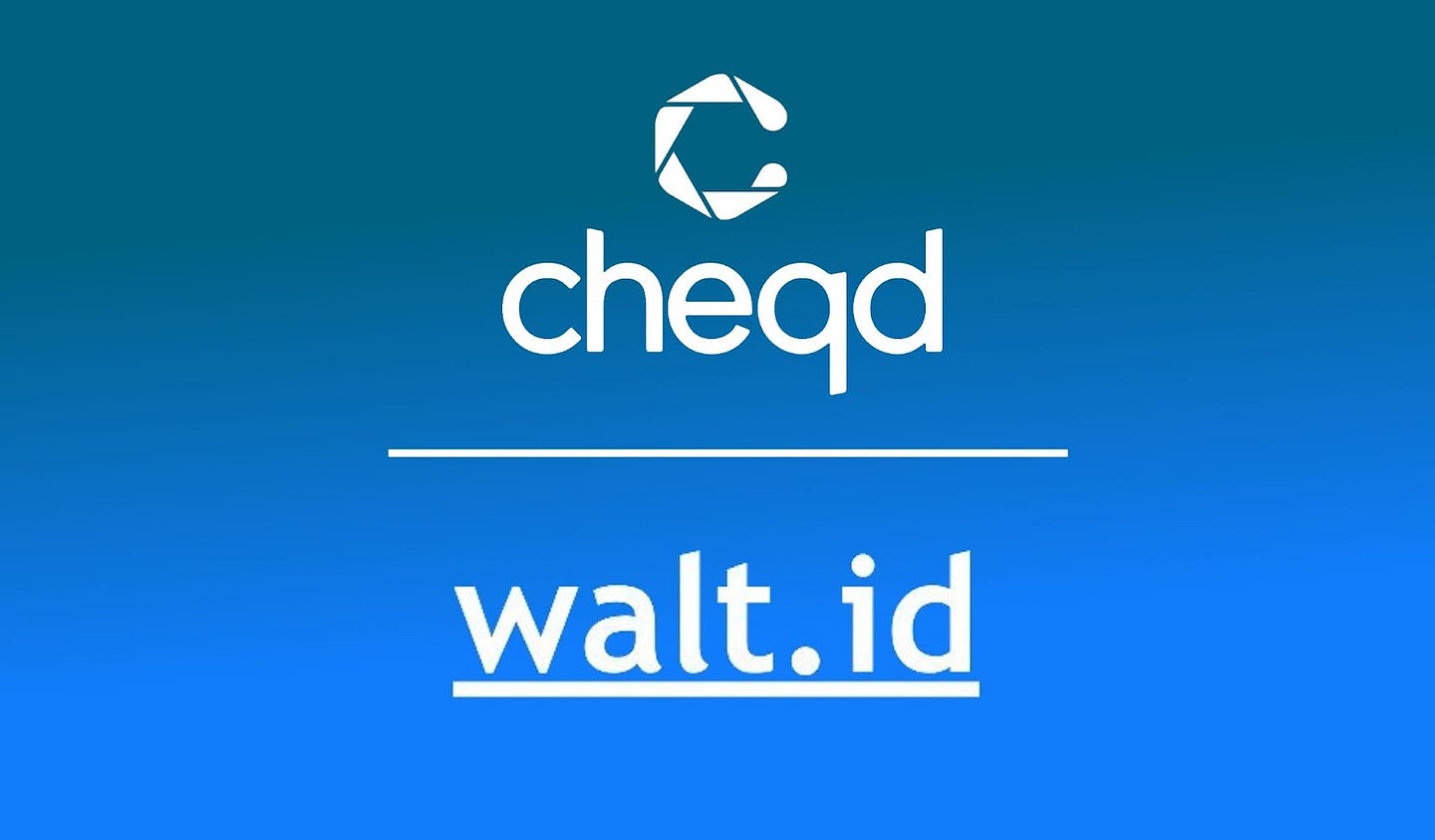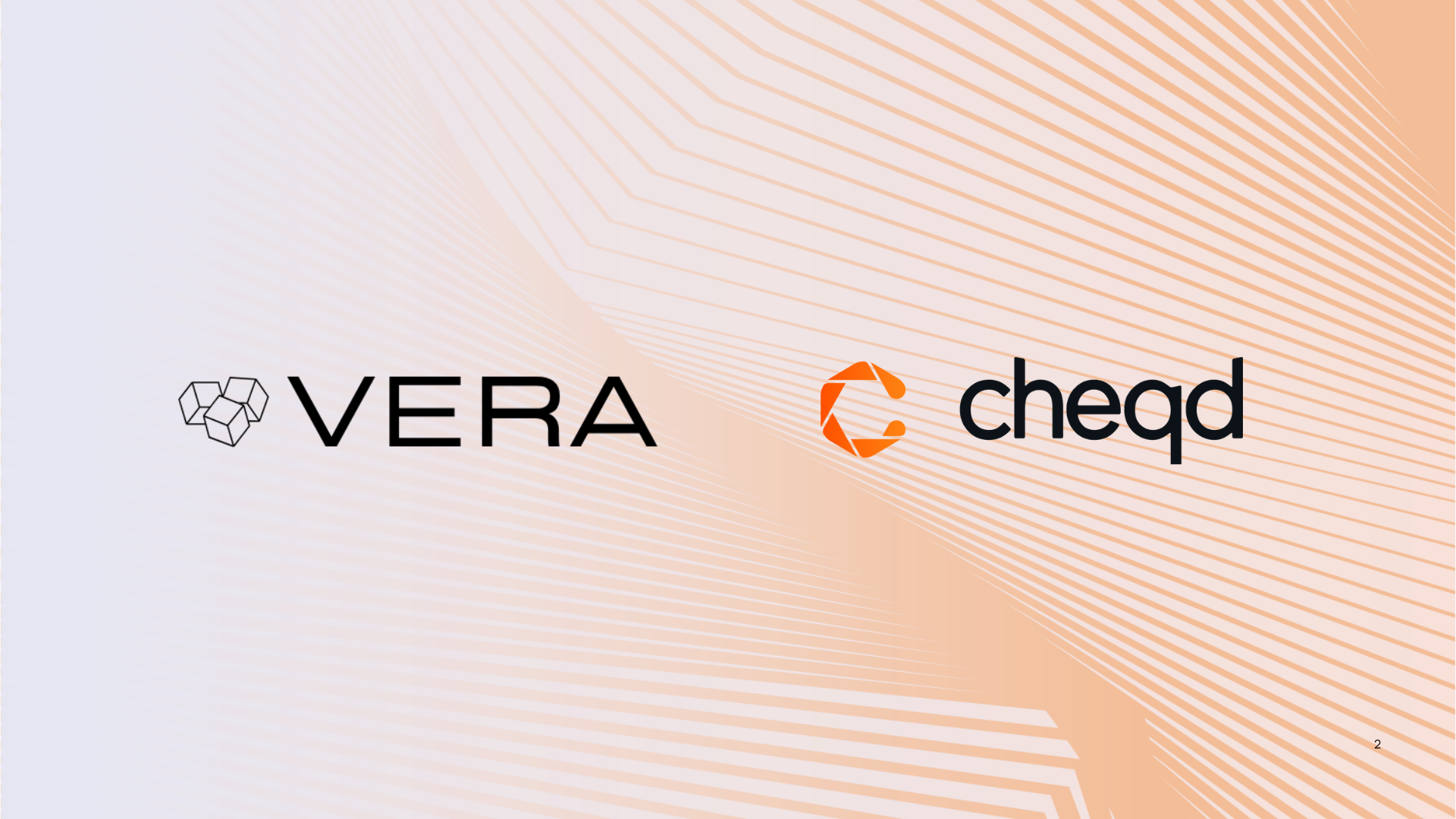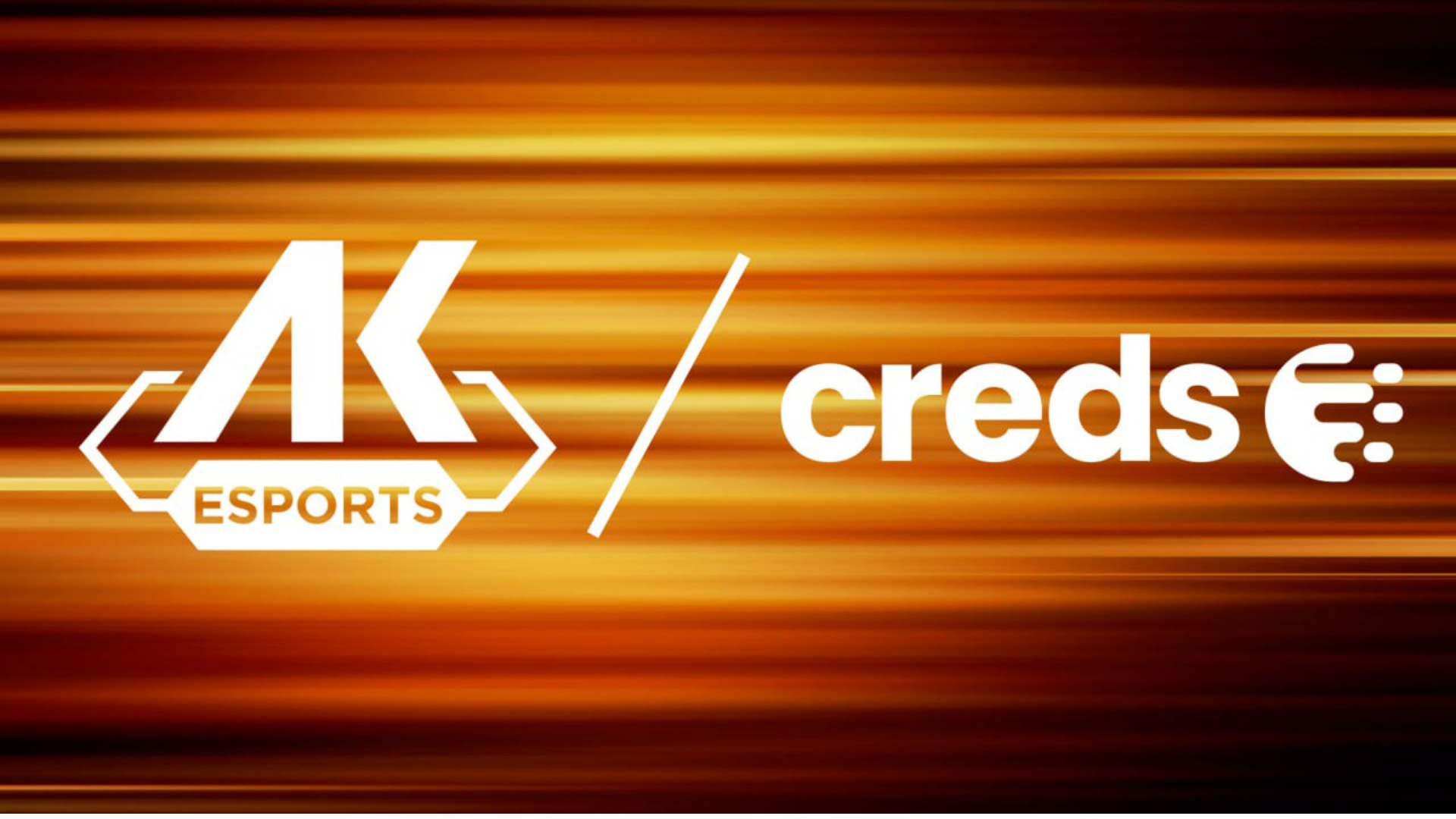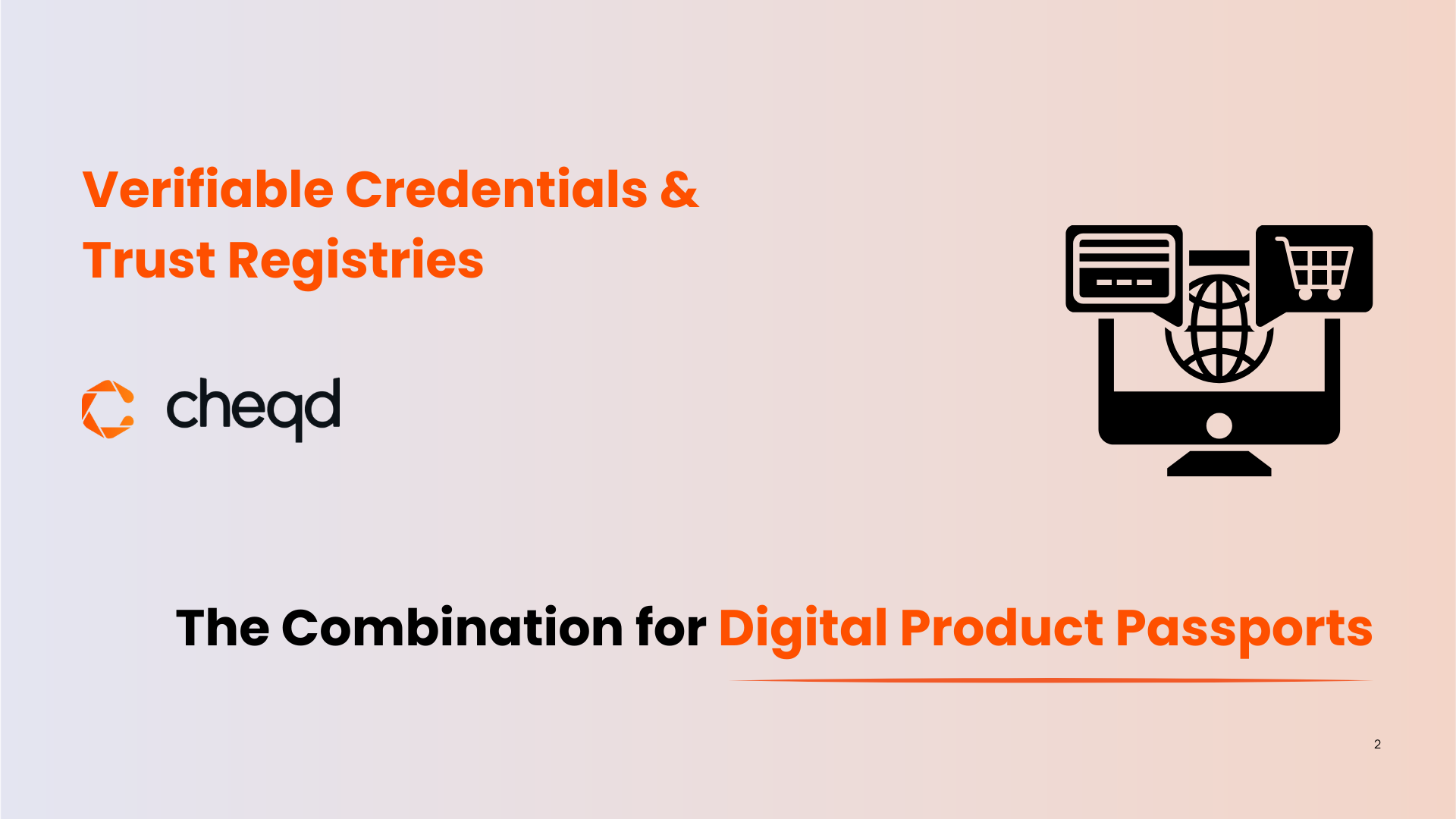Integration of cheqd into SSI Kit provides greater flexibility for adopters of cheqd, opens up a new customer-base for increased utility on the network and helps future-proof cheqd for upcoming EU regulations!
Introduction
We are excited to announce that cheqd is now fully supported in walt.id’s SSI Kit. This integration expands the support for cheqd in a greater array of SDKs, and provides end-customers the flexibility to choose a wider breadth of options for credential exchange protocols.
SSI Kit leverages the cheqd/sdk, slotting neatly alongside other supported SDKs including Veramo, and the soon to be released Aries SDKs, offering a wide range of SDK choices for SSI app developers which they can select dependent on their needs and existing stack.
What is SSI Kit?
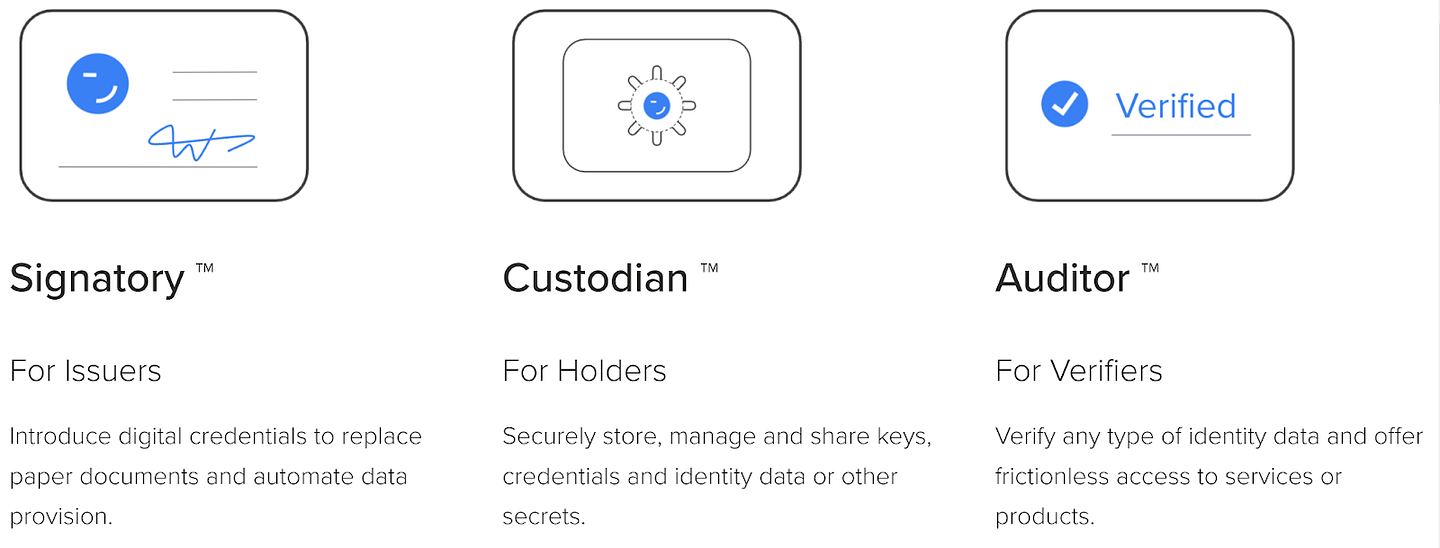
SSI Kit utility for different parties
walt.id docs — SSI Kit | Basics — Learn what the SSI Kit is.
Integrating cheqd with SSI Kit provides an array of benefits for both cheqd and walt.id’s existing end-customers and users:
cheqd customers:
Supporting cheqd within the SSI Kit means that anyone that wants to use cheqd, can now do so through walt.id’s intuitive and easy to use tools — available here. Through this, SSI developers can:
- Create DID — Create your first did:cheqd
- Issue VC — Issue your first Verifiable Credential based on a did:cheqd
- Verify VC — Verify your Credential based on a did:cheqd
This offers cheqd’s customers:
- Greater flexibility for end-customers: Through expanding support for cheqd into SSI Kit, end-customers can now choose a more specific technical stack that suits their needs best — with Veramo and Aries Framework JavaScript as other enterprise options.
- Simple APIs for credential operations: walt.id offers a selection of enterprise-ready APIs for creating, updating and revoking credentials. With this new integration, all of the operations can be carried out with cheqd DIDs which makes integrating cheqd DIDs, DID-Linked Resources and Credentials into client applications lightweight and simple!
- Future proofed for upcoming regulations: SSI Kit uses the OpenID for Verifiable Credentials stack for establishing peer-to-peer connections and for credential exchange. This is notable because it aligns with the proposed European Digital Identity Architecture and Reference Framework, which will accompany upcoming European regulations such as eIDAS v2.
- Streamlining the bridge from Web2 identity into Web3: Through walt.id’s IDP kit, (Identity Provider Kit) cheqd customers can use cheqd issued Verifiable Credentials with traditional identity infrastructure, such as IAM tools including KeyCloak, gluu and Okta.
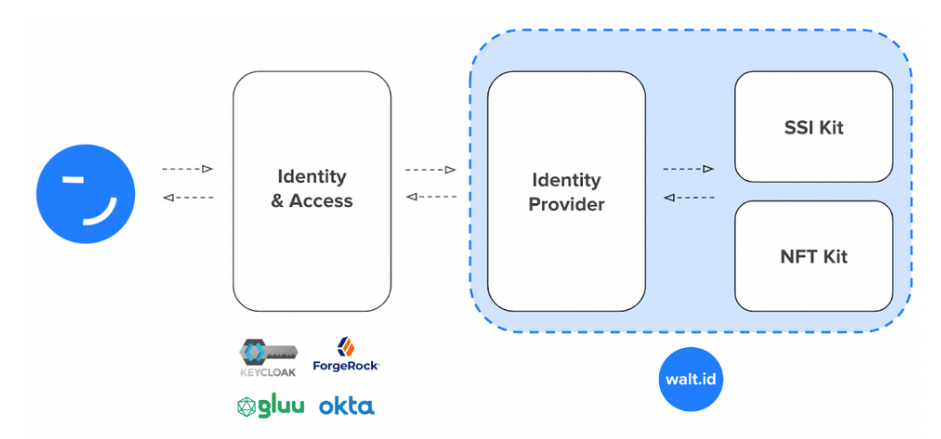
walt.id customers:
- Support for DID-Linked Resources: cheqd is the first identity network to build and support DID-Linked Resources (now a draft W3C standard) to support various identity data structures such as schemas, trust registries and status lists. Support for cheqd enables walt.id’s existing customer-base to utilise this innovative functionality.
- Support for upcoming Payment Rails: cheqd’s vision is to become the de-facto payment mechanism for trusted data. By supporting cheqd within the SSI Kit, walt.id’s customers can benefit from already having existing integrations with cheqd, making it far easier and faster to leverage payment rails when released.
- Offering a higher performance network at a lower cost: cheqd is designed as a highly performant Layer 1 with high throughput. cheqd can process an estimated 7,500 Transactions Per Second (TPS), benchmarking well beyond other leading networks such as Cardono (250 TPS), Ethereum (15–30 TPS), Avalanche (5000 TPS) and Bitcoin (10 TPS). Gas fees on cheqd are a fraction of the cost of other networks, making it far cheaper to transact on the network.
Why is walt.id’s SSI Kit important for cheqd?
When it comes to Self-Sovereign Identity, there are different technical components that need to work together to construct an end-to-end solution. The combination of different protocols together to make-up a tech stack is vital for interoperability between different ecosystems.
The Trust over IP Foundation describe these different components clearly within the ToIP Stack:
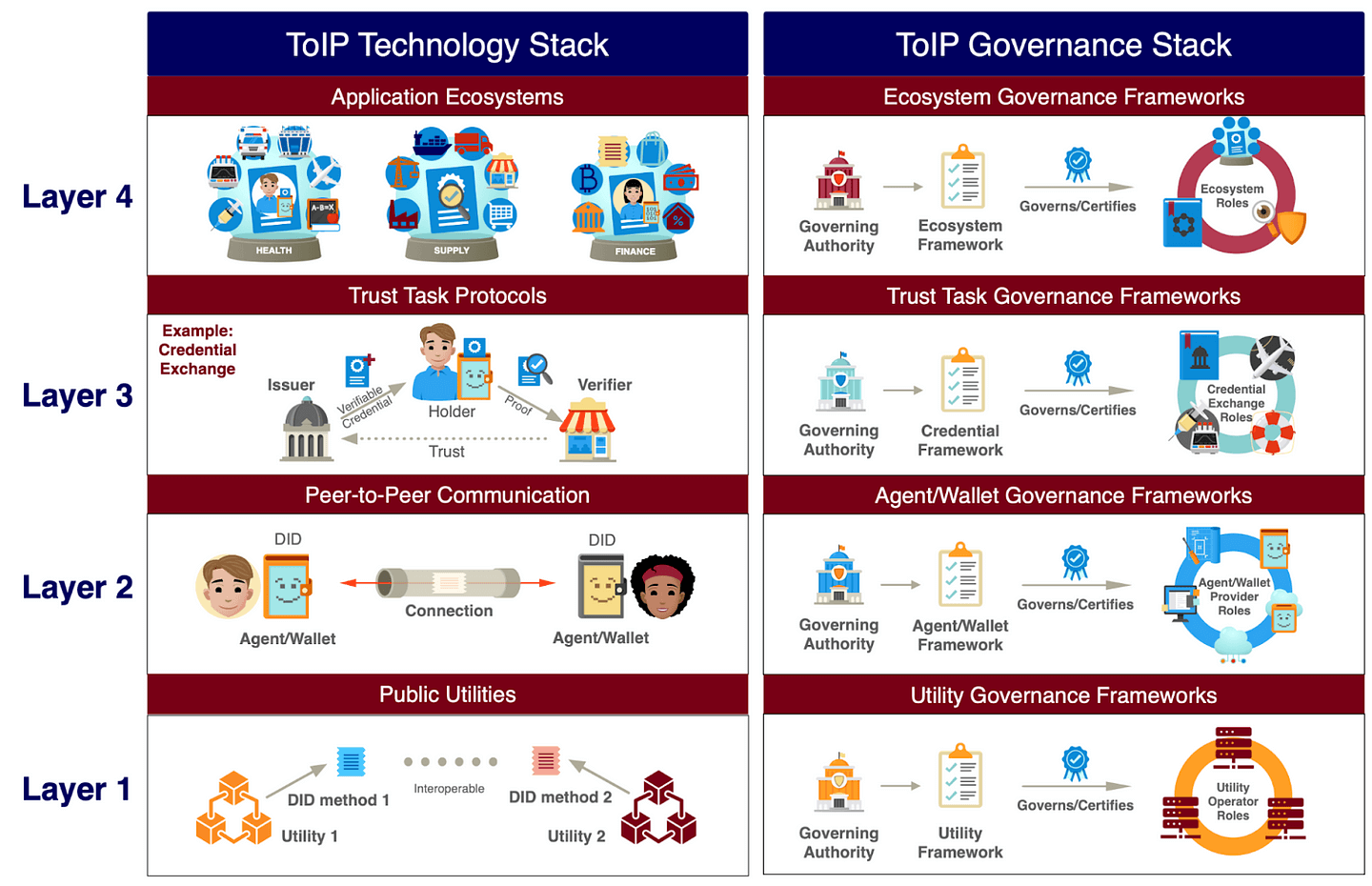
Trust over IP (ToIP) Stack
With reference to the image above, cheqd sits at the Layer 1 of the stack; cheqd is a Verifiable Data Registry with a DID method which supports the anchoring of DIDs and associated DID-Linked Resources.
SSI Kit works at Layers 2 and 3 of the stack, supporting a suite of protocols for credential exchange and peer-to-peer connections which hit a different market compared to those cheqd supports in its other SDKs. These include: OAuth, OpenID for Verifiable Credential Issuance (OpenID4VCI), OpenID for Verifiable Presentations (OpenID4VP) and Self-Issued OpenID Provider v2 (SIOP V2).
The image below offers a cheqd specific overview which helps to further illustrate SSI Kit’s place in the stack.
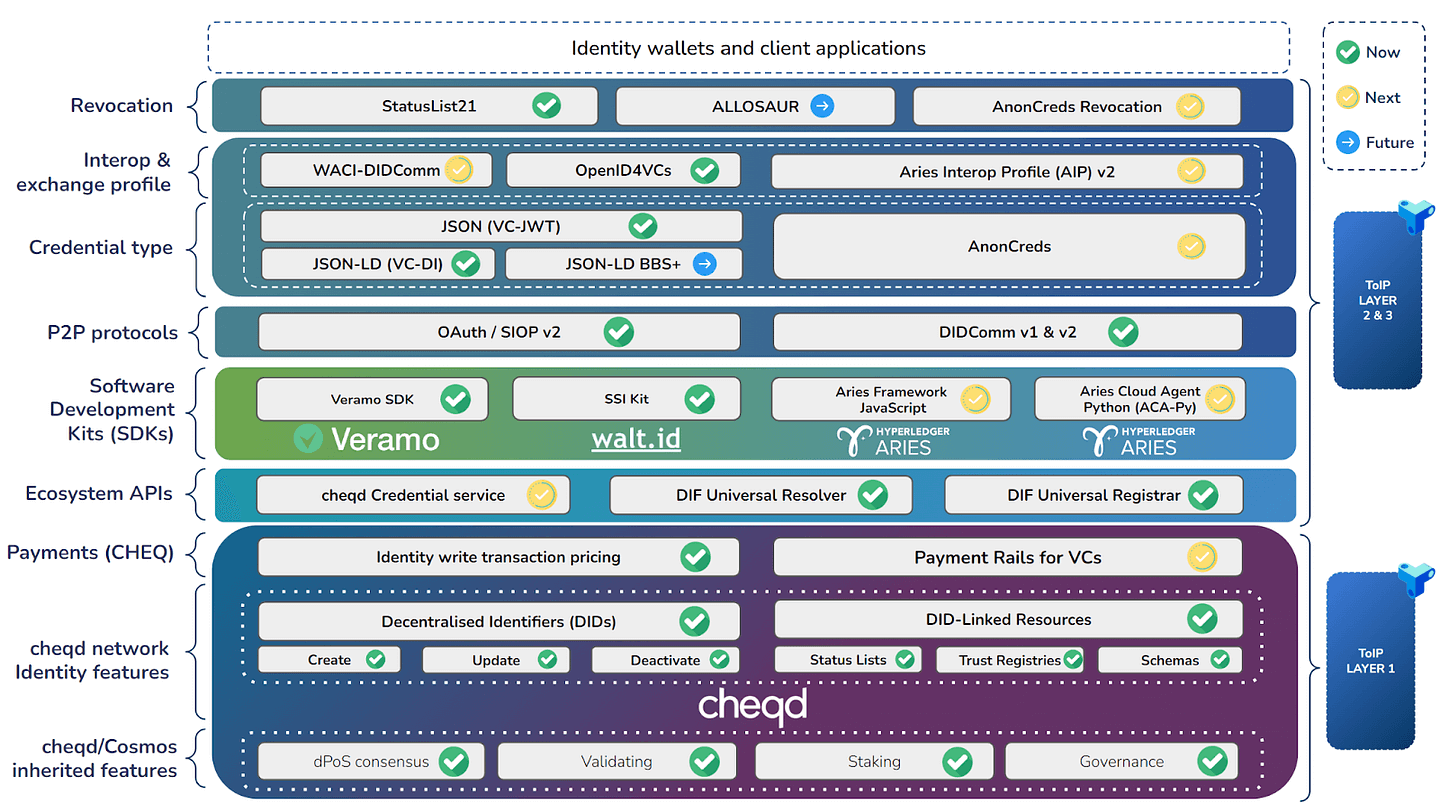
cheqd capability model
By supporting these protocols, it gives end-customers more flexibility in choosing a tech stack that fits on top of their use case, jurisdiction and existing identity management systems. This is especially important as:
- The OpenID for Verifiable Credential stack is closely related to OpenID Connect in terms of how the authentication flows work between different parties. This makes it less daunting for companies to transition from something more traditional or federated, such as OpenID Connect, to decentralised identity.
- The OpenID for Verifiable Credential protocols are also supported by a range of prominent SSI vendors, such as Microsoft (Entra), Mattr, Yes, Ping and Workday within the VC-JWT Presentation Profile, meaning that cheqd can now support and interoperate with a wider array of large vendors and their clients.
- These protocols form part of the European Digital Identity Architecture and Reference Framework, which is a new interoperability profile for companies to exchange trusted data in the European Union. Conforming with the technical stack described here will help future-proof cheqd’s tech stack for the upcoming European regulatory changes, which will give legal effect for credentials as a means of data exchange.
If you are interested in learning more about these regulatory changes, we would recommend that you read Avast’s takeaways from the regulatory changes, or watch Nacho Alamillo’s presentation on the proposed eIDAS 2 Regulation.
A bright future ahead
Interoperability, flexibility, simplicity and cost-efficiency are the key ingredients for adoption of Self-Sovereign Identity. With an eye on all of these, cheqd is positioning itself strategically for any vendor or organisation looking to implement an SSI solution. SSI Kit was the perfect storm for providing another enterprise software product, while also covering a new set of connection credential and exchange protocols.
Oh, and if you made it this far — we also have a lot of exciting developments to come, using this tech stack and the cheqd <> walt.id partnership 🔜👢👢
As always, if this blog resonates with you and you want to learn more about building on cheqd, please get in touch with our product team here and cheq-out our identity documentation here.

